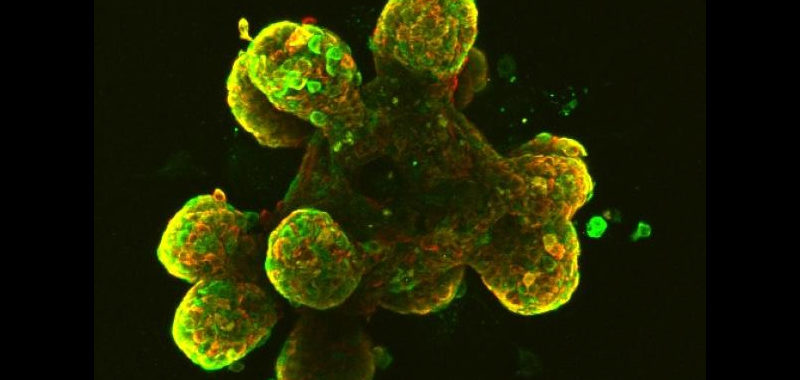We have openings for new grad students and postdocs to work on cutting edge research projects in synthetic biology, cancer biology, human embryonic stem cell biology, and epithelial homeostasis. Our students go on to outstanding postdoctoral positions and many have become successful independent investigators. Postdoctoral fellows in the Macara lab have frequently achieved tenure track faculty positions at R1 institutions.
Open projects include: (1) Understanding the sorting of apical membrane proteins at the Golgi apparatus (Nature Cell Biol 2024); (2) probing polarity and collective behaviors of epithelial cells including cancer cell extrusion and cell intercalation, using synthetic biology technologies and genome-wide screens (Developmental Cell 2023); (3) Determining mechanisms of mesoderm induction and epithelial to mesenchymal transition in human embryonic stem cells (Nature Cell Biol 2022).
The Macara laboratory is a diverse group of scientists, with past and present students and postdocs from France, Russia, the UK, Ecuador, Bangladesh, India, and Canada, as well as the US.
We are excited by fundamental questions about epithelial behavior in development, in homeostasis, and during cancer initiation. Embryonic stem cells are epithelial, and Loic Fort, a postdoc in the lab, has discovered two remarkable events that occur during human iPSC or ESC differentiation along the mesoderm/cardiomyocyte lineage. First, there is a rapid wave of apoptosis, followed at 49 hours post-induction of differentation by an abrupt EMT. Astonishingly, the apoptosis is essential for stem cells to respond to the WNT signal that switches on differentiation – a type of 2-factor authentication. This work was published in Nature Cell Biology (2022). A new postdoc, Vaishna, is now using CUT & RUN assays to determine ß-catenin occupancy at the promoters of WNT-responsive genes. We are also studying a central role for mechanobiology in cell fate specification.
We also use cell culture to determine how epithelial cells interact with one another and with cancer cells. A grad student, Christian de Caestecker, used synthetic biology approaches to track how polarity proteins are delivered to the correct location on the plasma membrane (Nat Cell Biol, 2024). This work is ongoing to investigate other types of apical membrane proteins. We have also discovered that mammary epithelial cells can intercalate into confluent monolayers, and we used computational modeling to show that this process is essential to ductal elongation during development (Dev Cell 2023).
Most human cancers arise from epithelial tissues. We use the mouse mammary gland as a model system (Dev Cell 2020). Transgenic mice provide powerful tools to probe breast cancer initiation mechanisms and responses to injury. We are particularly interested in the transition from mammary Ductal Carcinoma in Situ (DCIS) to Invasive Ductal Carcinoma (IDC), and in the mechanisms by which tumor cells escape the mammary ducts into the surrounding stroma.
We have developed genome-wide CRISPR screens to identify novel genes involved in epithelial homeostasis (eLife 2020). We also endogenously tag proteins involved in epithelial cell polarity, using CRISPR gene-editing, so as to track these proteins with single molecule sensitivity (Nature Commun 2018). We employ time-lapse multi-channel TIRFM and super-resolution microscopy, which provide unprecedented spatial and temporal resolution of protein complex dynamics .
INTERESTED IN A POSTDOCTORAL POSITION OR PhD RESEARCH IN THE LAB? – CONTACT IAN MACARA AT: ian.g.macara@vanderbilt.edu.


